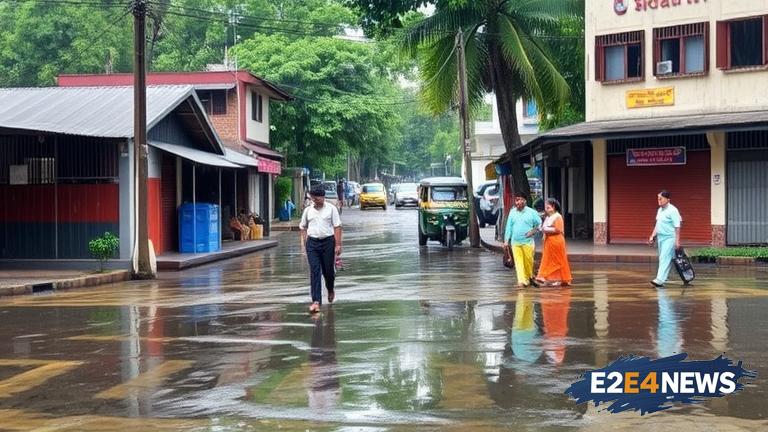Karnataka is currently facing a significant challenge in controlling the spread of dengue fever, a mosquito-borne illness that has been on the rise in recent weeks. The state’s health department has reported a substantial increase in dengue cases, with many patients requiring hospitalization. The situation has been exacerbated by the ongoing monsoon season, which has created ideal breeding conditions for the mosquitoes that transmit the disease. According to health officials, the number of dengue cases has been steadily increasing over the past few months, with some areas experiencing a particularly high incidence of the disease. The state government has responded to the crisis by launching a series of measures aimed at controlling the spread of dengue, including increased surveillance and monitoring of mosquito breeding sites. Additionally, health workers have been deployed to affected areas to provide medical care and support to those affected by the disease. Despite these efforts, the situation remains a cause for concern, with many residents expressing anxiety and fear about the potential risks associated with dengue. The disease is typically characterized by symptoms such as fever, headache, and joint pain, although in severe cases, it can lead to more serious complications, including hemorrhaging and organ failure. In an effort to mitigate the risks, residents are being advised to take precautions such as using mosquito repellents, wearing protective clothing, and eliminating standing water around their homes. The state’s health department has also established a network of hospitals and healthcare facilities to provide treatment and care to those affected by the disease. Furthermore, awareness campaigns are being conducted to educate the public about the risks associated with dengue and the importance of taking preventive measures. The monsoon season has also brought other health challenges, including an increased risk of waterborne diseases such as cholera and typhoid. To address these concerns, the state government has launched a series of initiatives aimed at improving sanitation and hygiene in affected areas. These efforts include the provision of safe drinking water, the construction of toilets and latrines, and the implementation of waste management systems. In addition to these measures, the government has also established a team of health experts to monitor the situation and provide guidance on the control and prevention of dengue and other monsoon-related health issues. The team is working closely with local authorities, healthcare providers, and community leaders to ensure a coordinated response to the crisis. Meanwhile, residents are being urged to remain vigilant and to take all necessary precautions to protect themselves and their families from the risks associated with dengue and other monsoon-related health issues. The state’s health department is also working to strengthen its disease surveillance systems, including the establishment of a network of laboratories and testing facilities to enable rapid diagnosis and treatment of dengue and other diseases. In terms of prevention, the government is promoting the use of mosquito nets, insecticide-treated bed nets, and other protective measures to reduce the risk of mosquito bites. Moreover, the state’s health department is collaborating with international organizations and experts to access the latest research and technologies in the prevention and control of dengue and other mosquito-borne diseases. The situation in Karnataka serves as a reminder of the importance of preparedness and prevention in mitigating the risks associated with monsoon-related health crises. By taking proactive measures to control the spread of dengue and other diseases, the state government aims to reduce the burden on the healthcare system and protect the health and well-being of its residents. Overall, the dengue outbreak in Karnataka highlights the need for sustained efforts to improve public health infrastructure, enhance disease surveillance, and promote community awareness and engagement in the prevention and control of mosquito-borne diseases.
